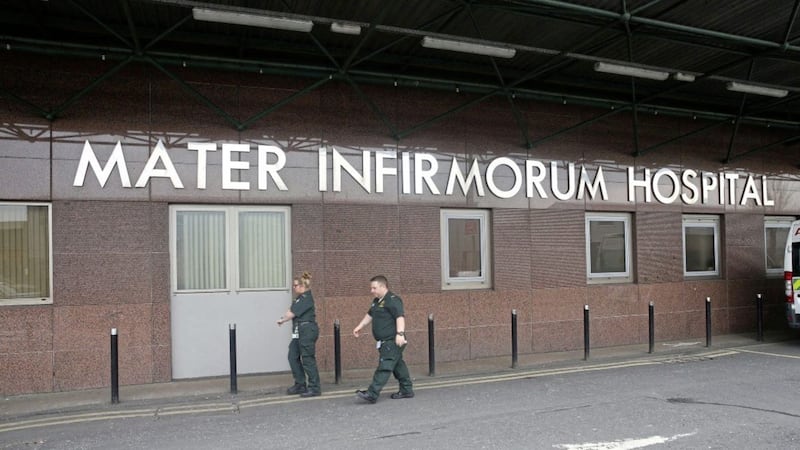The number of people who have died in Northern Ireland after contracting coronavirus has risen by six to 36, health officials said.
Testing has resulted in 85 new positive cases, bringing the total number of confirmed cases in the region to 774.
The Irish News understands that the Mater Hospital’s coronavirus centre is almost at capacity - just over a week after it opened - and that several patients have already been transferred to Belfast City.
The number of cases tested in Northern Irealnd rose by 449 to 6899 in the past 24 hours.
A total of 2,921 patients have died in hospital after testing positive for coronavirus in the UK as of 5pm on Wednesday, the UK Department of Health said, up by 569 from 2,352 the day before.
Belfast City Hospital's tower block has become the north's first dedicated coronavirus centre ahead of a surge of patients needing intensive care.
The overhaul will see:
- the number of critical care ventilated beds more than doubling from 88 to 230
- the City becoming a 230-bed critical care facility
- some of the most experienced doctors and nurses from across Northern Ireland being redeployed to the city
- patients who do not have the virus, including cancer patients, being moved
- plans being drawn up for critical care capacity at Altnagelvin in Derry and the Ulster Hospital in Dundonald
- the exhibition centre at the Maze being used to house a field hospital for a ‘second wave’ of coronavirus cases which are expected once the lockdown restrictions are eased
The huge change is the biggest challenge the health service has faced since the Troubles.
The Belfast Trust said it was unable to comment on the number of patients who have been moved from the Mater to the City hospital because the situation remains "fluid".
However, it is understood several have already been transferred.
The overhaul means that frontline staff’s access to emergency Covid-19 testing and personal protective equipment is more important then ever.
Pat Cullen, director of the Royal College of Nursing in Northern Ireland, said efforts were being made to get more personal protective equipment (PPE) but ministers could not give assurances about the supply.
She met First Minister Arlene Foster, deputy First Minister Michelle O’Neill and health minister Robin Swann last night to discuss the college’s concerns about the availability of PPE.
But she added: “We are not able to get the assurance that we need at this moment in time that… the supply is there.”
“We know from yesterday that we have 230 additional ICU beds coming on board for the population of Northern Ireland,” she told BBC Radio Ulster.
“We know that those beds require the highest level of PPE and late yesterday evening, after our meeting with the ministers, we did write (to them)… and outlined the consequences should the level of PPE protection for our nurses not be available.”
Ms Cullen said many nurses were hugely fearful and anxious.
“Community nurses are still feeling that they do not have the correct PPE… and in some acute hospital wards that feels the same,” she said.
The news last night came as deaths from Covid-19 moved well past the 100 mark across the island of Ireland.
A further two deaths in the north brought the total to 30, while there have been 85 in the south.
More than 2,300 people had died across the UK yesterday, 563 of them over the previous 24 hours.
Latest modelling suggests Northern Ireland could see up to 3,000 deaths over 20 weeks in this wave of the coronavirus pandemic, with the peak expected to be reached over Easter.
Health minister Robin Swann said this was not a prediction but he was planning for a "scenario beyond the reasonable worst case".
He added that he was determined to everything possible to support staff affected by the reorganisation.
“The best way to ensure our health service can cope remains for everyone to stick firmly to the social distancing measures now in place. That message cannot be repeated too frequently or too forcibly,” he said.








